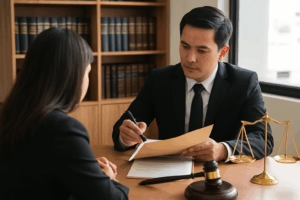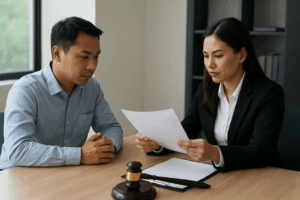In the dynamic world of social media marketing, influencers wield significant power in shaping consumer perceptions and driving brand engagement. With their ability to reach millions of followers with a single post, social media influencers have become sought-after partners for brands looking to expand their reach and increase sales. However, in Thailand, this burgeoning industry is not without its legal complexities, especially concerning advertising standards and compliance with regulations set forth by the government. In this comprehensive guide, we’ll delve into the essential considerations for social media influencers operating in Thailand, exploring the legal landscape and offering practical tips to ensure compliance while maximizing the impact of influencer marketing campaigns.
Understanding Advertising Standards in Thailand
In Thailand, advertising standards are governed by a set of regulations aimed at protecting consumers and promoting fair competition in the marketplace. The Advertising and Marketing Communications Code of Ethics issued by the Advertising Association of Thailand (AAT) provides guidelines for advertisers, including social media influencers, to follow when creating promotional content. Key principles include:
Transparency: Social media influencers must clearly disclose any sponsored content or paid partnerships. Failure to do so can mislead consumers and violate advertising standards. Disclosures should be prominent and easily noticeable, using phrases such as “Paid partnership” or “Sponsored by [Brand].”
Truthfulness: Influencers must ensure that their promotional content is truthful and not misleading. Any claims about a product or service should be substantiated with evidence to avoid false advertising allegations.
Respect for Consumers: Influencers should respect the dignity and rights of consumers in their marketing efforts. This includes avoiding deceptive tactics, such as fake reviews or testimonials, and refraining from promoting harmful products or services.
Respecting Intellectual Property Rights
Intellectual property infringement is another area of concern for social media influencers in Thailand. Unauthorized use of copyrighted material, such as images, music, or trademarks, can result in legal consequences, including fines and potential lawsuits. To mitigate the risk of infringement:
Obtain Proper Permissions: When using third-party content in promotional posts, seek permission from the copyright holder or use content that is licensed for commercial use. This applies to images, music tracks, and any other copyrighted material.
Create Original Content: Whenever possible, create original content that does not rely on third-party materials. This not only minimizes the risk of infringement but also enhances the authenticity and uniqueness of your brand.
Monitor and Respond to Copyright Claims: Keep track of any copyright claims or takedown notices related to your content. Promptly respond to such claims and take appropriate actions, such as removing the infringing material or seeking legal advice.
Navigating Defamation Laws
Thailand has stringent defamation laws that can impact social media influencers who engage in online commentary or criticism. Defamatory statements, whether written or spoken, that harm the reputation of an individual or organization can lead to civil lawsuits or criminal charges. To avoid defamation allegations:
Exercise Caution When Expressing Opinions: While freedom of expression is protected by law, opinions that are deemed defamatory or harmful may still result in legal consequences. Exercise discretion when sharing personal opinions or criticisms, and refrain from making unfounded allegations.
Stick to Facts: When discussing individuals or entities in your content, rely on factual information supported by evidence. Avoid spreading rumors or unsubstantiated claims that could be perceived as defamatory.
Be Mindful of Cultural Sensitivities: Thailand’s defamation laws are influenced by cultural norms and values. Respect cultural sensitivities when discussing sensitive topics, such as religion, politics, or the monarchy, to avoid inadvertently violating defamation laws.
Respecting Privacy Rights
Privacy rights are enshrined in Thai law, and social media influencers must respect the privacy of individuals when creating content. This includes obtaining consent before filming or photographing individuals in public spaces and refraining from sharing private information without permission. To protect privacy rights:
Obtain Consent: Before featuring individuals in your content, obtain their consent, especially if they are recognizable or identifiable. Clearly explain how their image or likeness will be used and obtain written consent whenever possible.
Blur Faces and Mask Identities: If filming or photographing in public spaces where individuals’ consent cannot be obtained, blur faces or mask identities to protect privacy rights. This demonstrates respect for individuals’ privacy while still allowing you to capture engaging content.
Limit Access to Personal Information: Avoid sharing personal information, such as contact details or private messages, without the explicit consent of the individual concerned. Respect individuals’ right to privacy and refrain from sharing sensitive information without authorization.
Staying Informed and Seeking Legal Guidance
The legal landscape surrounding social media influencer marketing is constantly evolving, and staying informed about regulatory changes and industry best practices is essential. Additionally, seeking legal guidance from experienced professionals, such as a reputable Bangkok law firm specializing in media and advertising law, can provide valuable insights and ensure compliance with local regulations.
In Conclusion
Social media influencers play a significant role in shaping consumer behavior and brand perception in Thailand. However, navigating the legal complexities of influencer marketing requires careful attention to advertising standards, intellectual property rights, defamation laws, and privacy rights. By adhering to ethical guidelines, respecting legal boundaries, and seeking legal guidance when needed, influencers can harness the power of social media to drive meaningful engagement while mitigating legal risks.
As you venture into the dynamic world of influencer marketing in Thailand, remember that compliance with legal standards not only safeguards your reputation and credibility but also fosters trust with your audience and brand partners. By prioritizing transparency, authenticity, and respect for legal boundaries, you can elevate your influencer marketing efforts and establish yourself as a trusted voice in the digital landscape.
For expert legal guidance and support in navigating the intricacies of influencer marketing law in Thailand, contact [Insert Bangkok law firm name] today. Our team of experienced attorneys is dedicated to helping influencers and brands achieve their goals while ensuring compliance with local regulations. Let us be your trusted partner in maximizing the impact of your influencer marketing campaigns while safeguarding your legal interests.
Contact : Siam Center Law Group by calling +66(0) 2 648 5041, +66(0) 2 648 5042





